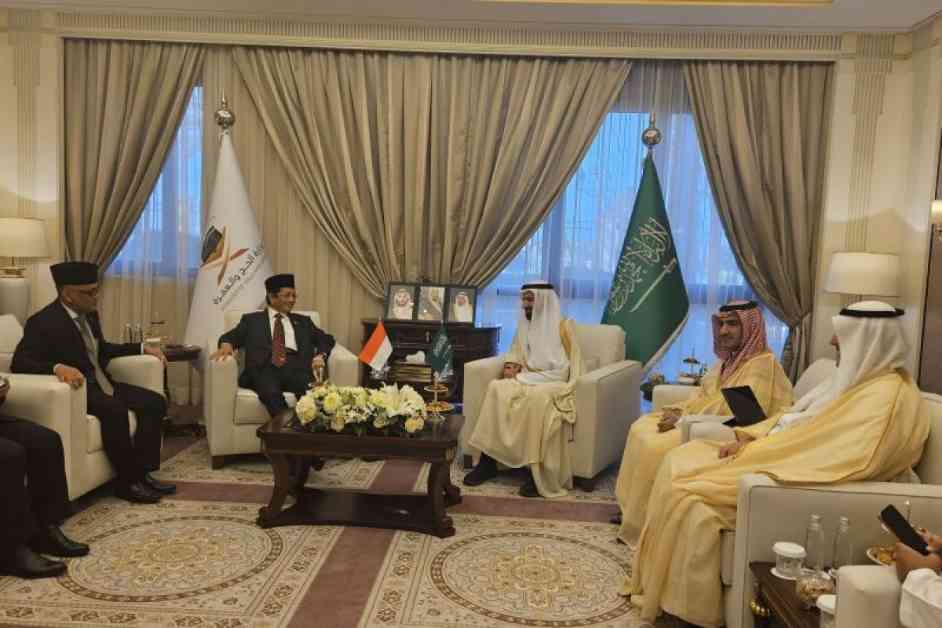Enhancing Hajj Experience: Indonesia and Saudi Arabia Discuss Tanazul Scheme
In a groundbreaking meeting between Indonesian Religious Affairs Minister Nasaruddin Umar and Saudi Minister of Hajj and Umrah Tawfiq F. Al Rabiah, the implementation of the tanazul scheme was at the forefront of discussions. This scheme aims to revolutionize the Hajj experience for Indonesian pilgrims, addressing the issue of overcrowding in Mina, a crucial pilgrimage site.
The Importance of the Tanazul Scheme
Minister Umar emphasized the significance of the tanazul scheme in alleviating the congestion in Mina, particularly for the large number of Indonesian Hajj pilgrims. By allowing pilgrims to perform mabit, or overnight stays, near the jamarat location for the devil stoning ritual, they can return to their hotels without the need to camp in tents in Mina. This innovative approach is expected to reduce the number of tents in the area, which has faced criticism from authorities.
International Recognition and Collaboration
Indonesia’s Hajj services have garnered positive feedback from various countries, prompting them to seek insights from Indonesia’s experiences. Minister Umar also appealed to the Saudi Arabian government to exempt Indonesian Hajj officers from new entry fees for key pilgrimage sites like Arafah, Muzdalifah, and Mina. This collaborative effort aims to enhance the overall pilgrimage experience for Indonesian pilgrims and officials.
Looking Towards the Future
During his visit to Saudi Arabia, Minister Umar engaged with key stakeholders and expressed appreciation for the Saudi Arabian government’s exceptional Hajj-related programs. He believes that Indonesia can draw inspiration from these initiatives to elevate this year’s Hajj services. The commitment to continuous improvement and collaboration between Indonesia and Saudi Arabia sets a promising precedent for future Hajj seasons.
As someone who has always been fascinated by different cultures and religious practices, reading about the efforts to enhance the Hajj experience for Indonesian pilgrims struck a chord with me. The tanazul scheme not only addresses logistical challenges but also emphasizes the importance of creating a meaningful and comfortable pilgrimage journey for individuals undertaking this sacred obligation.
It’s heartening to see countries like Indonesia and Saudi Arabia coming together to innovate and improve the Hajj experience, showcasing the power of collaboration in fostering cultural exchange and mutual respect. This initiative not only benefits Indonesian pilgrims but also sets a positive example for other nations to enhance their Hajj services and promote inclusivity in religious practices.
In a world often divided by borders and beliefs, initiatives like the tanazul scheme remind us of the shared humanity and spiritual connections that transcend geographical boundaries. As we strive to make religious journeys more accessible and enriching for all, let’s continue to support efforts that promote unity, understanding, and respect among diverse communities worldwide.






















